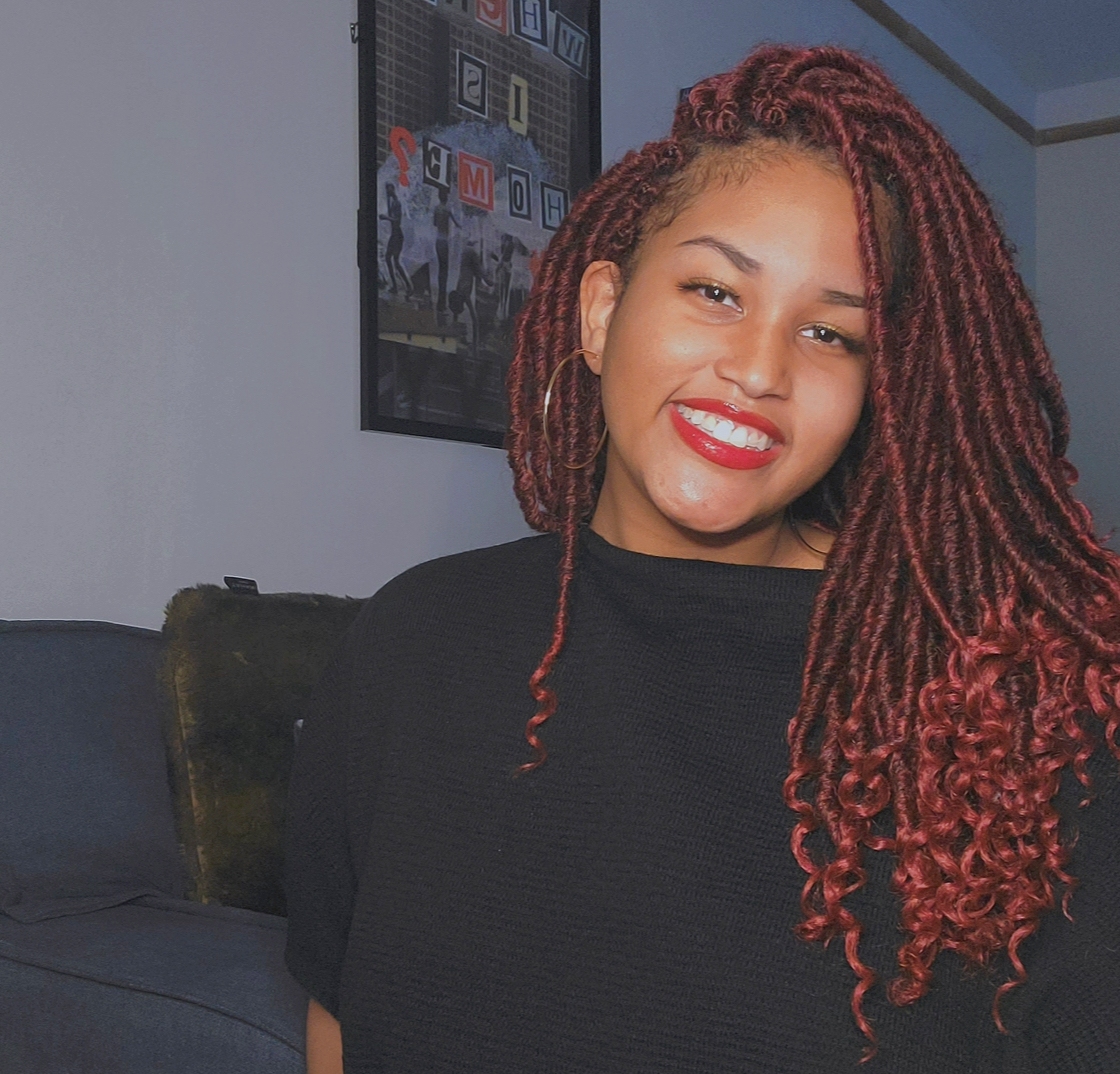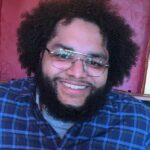
We’re revisiting our favorite stories of the year. This one was first published October 19.
 I picked this because Ja’Loni Owens was great at the YWCA Racial Justice Summit and our conversation spoke a lot to the importance and difficulty of social good/community work, and they are still early in their journey as an activist and advocate.
I picked this because Ja’Loni Owens was great at the YWCA Racial Justice Summit and our conversation spoke a lot to the importance and difficulty of social good/community work, and they are still early in their journey as an activist and advocate.The YWCA Racial Justice Summit that took place in Madison at the beginning of October brought with it a range of individuals on the front lines of social justice across a variety of areas from race and gender, to environmental and disability justice. One of the keynote speakers who participated in an intergenerational dialogue on social justice and organizing was Ja’Loni Amor Owens, a Black queer reproductive justice organizer, full-spectrum doula, writer, and lawyer who uses their talents and skills to push further for others along with themself.
Owens is no stranger to being active in movements, even at just 25 years old, and graduated from the City University of New York with a Juris Doctor last year. Now working as a Reparations Coordinator for Law For Black Lives, a Black femme-led organization consisting of lawyers and legal workers addressing issues that face marginalized and underrepresented people, Owens is continuing to find ways to expand and shift effort to what is necessary in the moment.
“At this point, I’m definitely still trying to figure out where I’m going, and what kind of niche I’m trying to situate myself,” Owens told Madison365. “I feel really guided by the idea of and really care about community, and I care about reproductive justice. That site is where I entered movement from the very beginning, so I’m really driven by that. That’s how I ended up becoming a doula and why I’m trying to think about ways that I can use being an attorney and being in spaces as an attorney to try to democratize law.”
An important area of discussion during the YWCA Racial Justice Summit Keynote centered around caring for personal well-being within the efforts for progress and social justice. Owens recalled seeing events unfold around Ferguson, Missouri [after the killing of 18-year-old Michael Brown by a police officer] at an age when they were too young to truly get involved, to seeing the reactions to inequality, police violence, and lack of social support over 2020 and having more capacity to get involved directly then. However, now as we approach 2024, Owens’ balance of caring for others as well as self is built off of the culmination of their experiences, resulting in a path forward immersed in community and action.
“Even looking at then and now, I think that I’m on whatever that path is,” said Owens. “I’ve been trying to give myself some level of grace or patience around it. It doesn’t always feel like we’re on the path because it’s a walk. It’s not like we’re necessarily close to the destination, but you’re like, ‘Cool, I must be going the right way.’ It’s just a long path, and there are obstacles in the way; some of them that you can control, some of them you can’t. I’m trying to be thoughtful about skills that I’m acquiring and using while I’m on that path, but also the relationships that I’m building.”
While Owens has had access to the knowledge, courses, and information that helps build social movements, they stressed the importance of utilizing those benefits in a way that does not look to dominate or control people by giving them demands and definite answers and solutions. Instead, they suggested expanding the reach of political and social education, to give people a better understanding of issues while building relations to have an intimate perspective on what and how people think.
Owens suggested one aspect of current organizing around issues that may make this approach harder is equating non-profit organizations with people’s voices and needs. While many non-profits do great work and both hold within and represent people in the community, it is also crucial that individuals also connect with other people in the community outside of just engaging with non-profits.
“I think that if we were doing political education from an approach of everybody is going to be armed with this knowledge, and in light of that is able to have the same kinds of knowledge inform their strategy, then I think it becomes much clearer who actually is not invested in the path forward,” Owens suggested. “Who actually is invested in the status quo, and who feels like this is the arena I show up? Whether that’s the electoral space, or a very niche policy area, or if that’s mutual aid, then you’re able to see we’re all moving in lockstep, even though we’re doing different things. We’re still armed with the same knowledge and thinking of the same goal in different areas, and it looks different in light of that.”
Owens knows how difficult running truly community-based organizations can be, having experience in managing the Fill the Gap Project in New York City since March 2020. The project looked to address barriers to menstrual products, emergency contraception, and parenting supplies during the rise of COVID-19 when many such products were scarce in almost silence as those who needed them the most were some of the least represented and resourced.
Owens soon saw firsthand how important the work with Fill the Gap Project was when seeing the needs of those on the margins such as teenagers, trans people, and sex workers when it came to acquiring products, supplies, and support. The process of doing so was alleviated so much by the efforts of Owens and their collaborators, that they were able to carry the project out until recently when Owens had to take a step back due to the difficulty and unwavering nature of the systems that cause such needs to run rampant.
“It’s definitely a lot of emotional labor that I have not had to do in another organizing context. I think that to sustain something like that, it definitely requires real intentional community and really getting people to invest in meeting our needs this way. Feeling like it’s possible.” said Owens, noting how surprised people were to hear about the mutual aid project’s effectiveness based around the simple concept of selfless sharing.
“That is inside of us, we just need to feel safe enough or feel like it matters. That it’s not just a matter of being polite, but actually taking responsibility for each other’s survival. Thinking about it as a responsibility to do so. Feeling like I do, in fact, feel responsible for making sure that Black folks exist in the future, how do I make sure that happens beyond just basic reproduction?”
Owens is looking forward to the future in continuing their work across a range of areas, including continuing to press on for Trans rights and representation, recently collaborating to start the Transfuturist Collective.
The path ahead for Owens will certainly hold more community work and connections in the future, and you can follow their work from their Linktree here.



